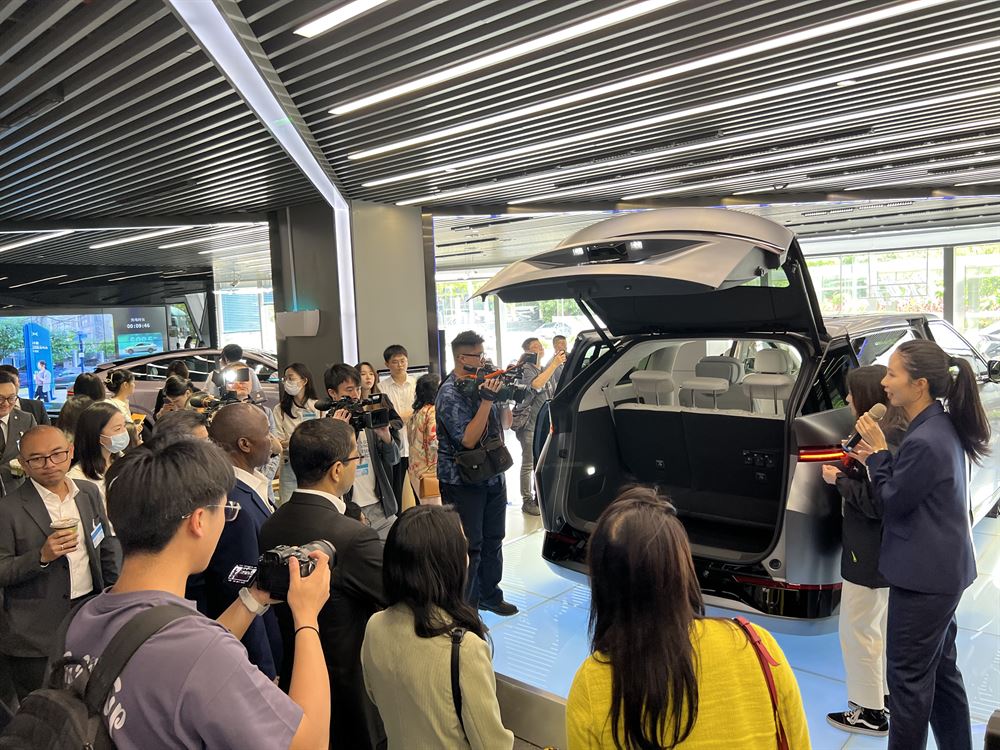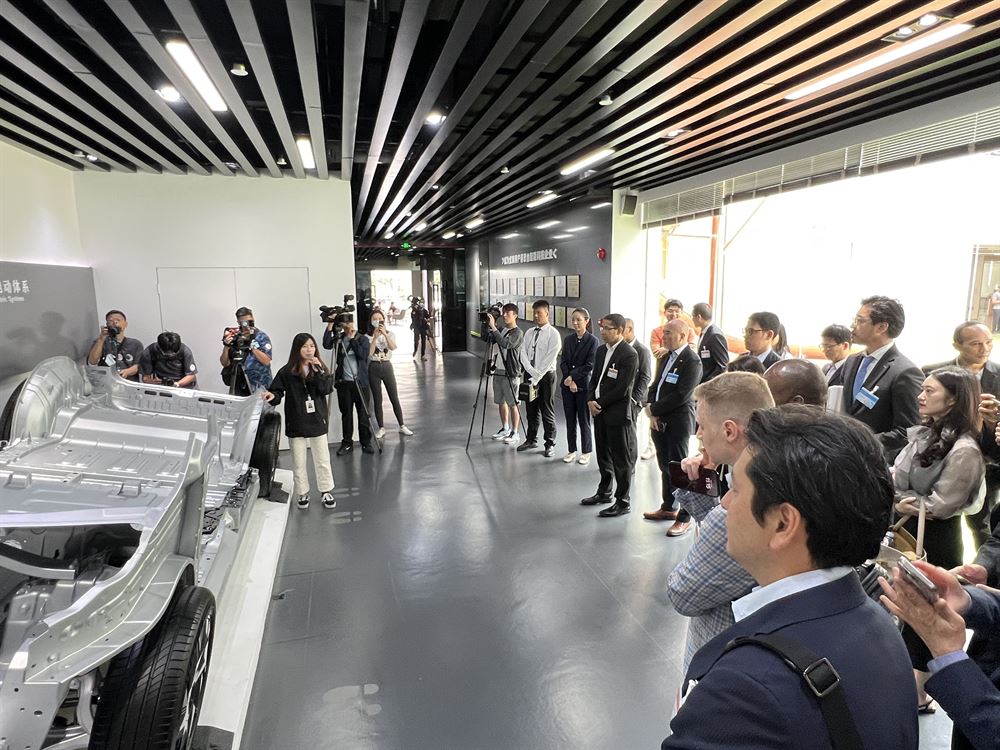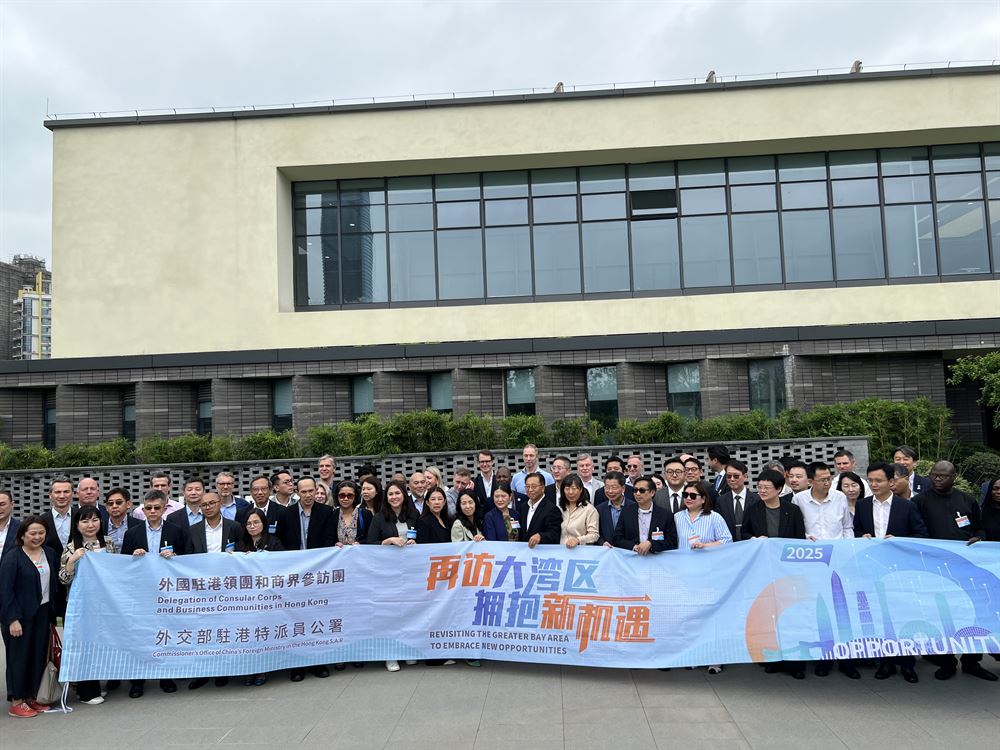
Southeast Asian business veterans participating in an opportunity-discovery tour of the Guangdong-Hong Kong-Macao Greater Bay Area said on Wednesday they hope to harness the region’s development opportunities and institutional advantages as a springboard into the broader Chinese market.
They were part of a delegation of more than 70 consular officials and business chamber heads from Hong Kong, who on Tuesday began a four-day tour to explore the Greater Bay Area’s economy vibes, with Shenzhen being their first stop.
On the second day, the delegation traveled to Guangzhou, with an itinerary that included stops at leading innovation-driven enterprises.
These included XAG, a robotics and artificial intelligence company specializing in smart agriculture; XPeng, a smart electric vehicle manufacturer, and its flying car venture, XPeng Aeroht.
The group also toured Guangzhou International Financial City, a key platform facilitating external investment access to the Chinese mainland market, and visited Medprin Regenerative Medical Technologies, a company specializing in high-performance implantable medical devices.
The day concluded with a policy promotion session hosted by the Guangzhou municipal government, offering further insights into the city’s development strategies.
Guo Yonghang, Guangzhou’s Party secretary, highlighted the Greater Bay Area’s role as a global growth engine at the event, saying the region’s economy now exceeds 14 trillion yuan ($1.95 trillion). In these times of global uncertainty, cooperation has never been more important, he said.

Guo also pointed out Guangzhou’s strong appeal to international investors, with 362 companies listed in the Fortune 500 having established operations in the city — a testament to its business-friendly environment and growth potential, he said.
“We welcome companies from around the world to explore Guangzhou’s opportunities and consider investing here,” he said.
ALSO READ: High-profile delegation tours GBA for growth opportunities
One of China’s most dynamic economic engines, the Greater Bay Area — encompassing nine mainland cities along with the Hong Kong and Macao special administrative regions — has attracted significant international attention for its innovation-driven growth, advanced infrastructure, and seamless cross-border business integration, delegation members said.
Chairunissa Purliasih, head of Financial Institution at Bank Negara Indonesia’s Hong Kong branch, said the Greater Bay Area has seen remarkable growth since China unveiled its development plan in 2019.
“The Greater Bay Area has become the top choice for Indonesian businesses looking to enter the Chinese market,” she said, highlighting the region’s appeal due to deepening integration — including policies and legal frameworks — between the mainland, Hong Kong, and Macao.
“This interconnectedness benefits not only the Greater Bay Area but also China as a whole,” she added.
Xi Xi, a representative from the Malaysian Chamber of Commerce (Hong Kong and Macau), highlighted the growing synergy between Malaysian and Chinese businesses in sustainable energy, despite Malaysia’s traditional role as an oil-producing country.
“Malaysia is transitioning toward greener energy, opening significant opportunities for collaboration between our businesses and Guangzhou-based firms like XPeng,” she said.

Xi added that Chinese EV manufacturers such as BYD have already established factories in Southeast Asian markets like Thailand, fostering a regional ecosystem and facilitating technology transfers.
This is exactly what the Association of Southeast Asian Nations countries seek: sustainable partnerships through knowledge sharing, rather than just imports, she said.
Wong Tak-ki, president of the Hong Kong Philippines Chamber of Commerce, expressed admiration for the advanced technologies showcased during the tour, saying how far
China has progressed since its early days in the World Trade Organization, when the country focused primarily on low-cost exports.
“The technological innovation we’ve seen here represents a quantum leap from China’s manufacturing past,” Wong said.
He emphasized his desire to bridge these innovations with ASEAN markets through the Belt and Road Initiative.
READ MORE: GBA aircraft unveiled to promote HK's role as 'super connector'
He said that through the BRI framework, ASEAN nations wish to participate in China’s innovation ecosystem and become integral parts of the supply chain.


